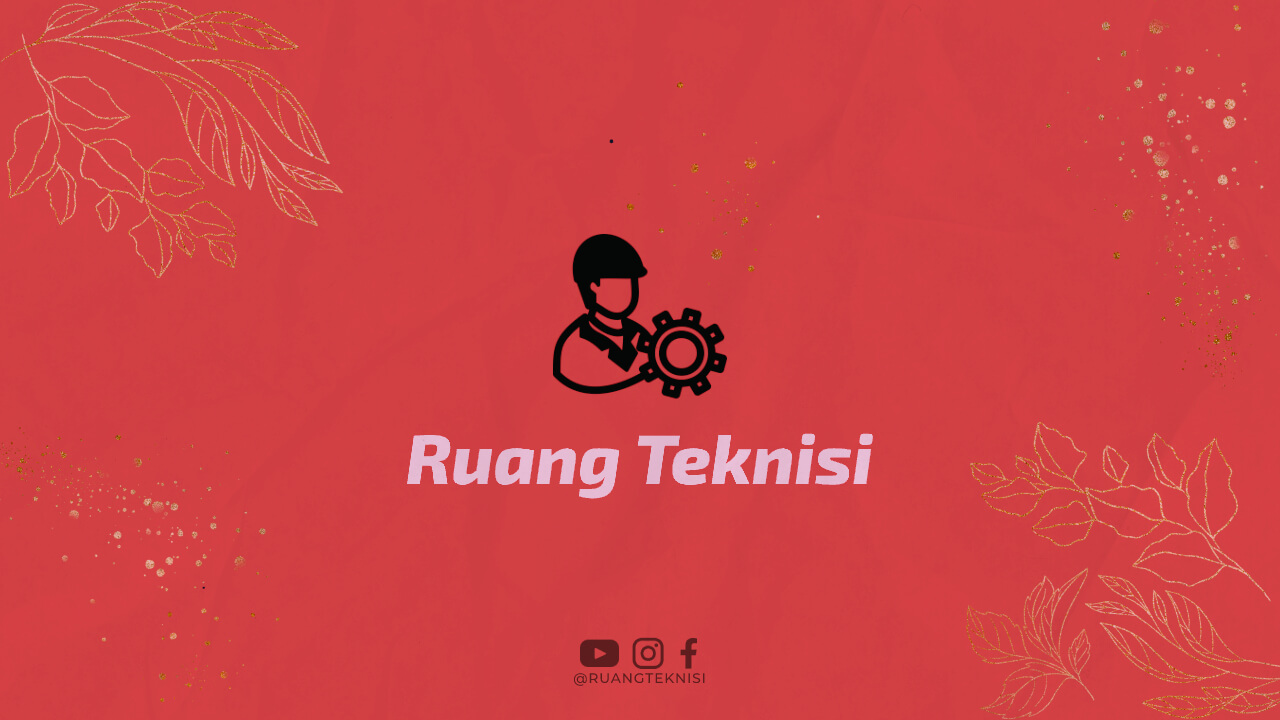Welcome to the ultimate guide on acing university entrance exams! As you embark on your journey towards higher education, it is crucial to understand the importance of these exams in securing a spot at your dream university. This article will provide you with valuable insights and strategies to help you conquer these tests and secure your admission.
Understanding the Significance of University Entrance Exams
University entrance exams serve as a determining factor for admission into prestigious educational institutions. These exams assess your knowledge, skills, and aptitude, enabling universities to evaluate your potential as a student. Scoring well in these exams not only increases your chances of securing admission but also opens doors to scholarships and other opportunities.
Key Factors Considered in University Entrance Exams
University entrance exams evaluate various aspects of your academic and intellectual abilities. These exams typically assess your proficiency in subjects like Mathematics, English, Science, and critical thinking. Additionally, they may include sections to evaluate your writing skills, logical reasoning, and analytical thinking.
Impact on University Admissions
University entrance exams play a pivotal role in the admissions process. They provide universities with a standardized benchmark to evaluate the large pool of applicants. By setting a minimum score requirement, universities can filter out applicants who do not meet their academic standards. Additionally, these exams help universities compare applicants and make informed decisions about admissions and scholarships.
Importance for Scholarships and Financial Aid
Scoring well in university entrance exams can significantly impact your eligibility for scholarships and financial aid. Many universities offer merit-based scholarships to students who achieve outstanding scores. These scholarships can alleviate the financial burden of tuition fees and provide you with opportunities for academic and personal growth.
Validating Your Potential
University entrance exams serve as a platform to showcase your abilities and potential. As an aspiring student, these exams allow you to demonstrate your academic readiness, intellectual curiosity, and problem-solving skills. By excelling in these exams, you prove to universities that you are prepared to thrive in their academic environment.
Choosing the Right Entrance Exam
Before diving into preparation, it is crucial to identify the entrance exams required by the universities you wish to apply to. Common entrance exams include the SAT, ACT, GRE, GMAT, and more. Research each exam’s requirements and select the one that aligns with your chosen field of study and target universities.
Understanding Exam Requirements
Each university entrance exam has specific requirements and focuses on different aspects of your academic abilities. Some exams may have a stronger emphasis on Mathematics, while others may prioritize verbal reasoning or scientific knowledge. It is vital to understand these requirements and choose an exam that aligns with your strengths and the expectations of your desired universities.
Researching University Preferences
Different universities may have different preferences when it comes to entrance exams. Some universities may accept multiple exams, while others may have a specific exam preference. Research the universities you are interested in and determine which exams they consider for admissions. This will help you narrow down your options and focus your preparation effectively.
Considering Field of Study
Consider your chosen field of study when selecting an entrance exam. Some exams are tailored to specific disciplines, such as the MCAT for medical school or the LSAT for law school. Choosing an exam that aligns with your desired field of study ensures that you are tested on relevant knowledge and skills required for your future academic pursuits.
Seeking Expert Advice
If you are unsure about which entrance exam to choose, seeking expert advice can be beneficial. Consult with academic advisors, teachers, or mentors who can provide guidance based on your academic strengths, career aspirations, and the requirements of your target universities. Their insights can help you make an informed decision.
Creating a Study Plan
Once you have chosen your exam, it’s time to create a study plan. Start by identifying your strengths and weaknesses in various subjects. Allocate more time to challenging areas while maintaining a balance across all subjects. Break your study plan into smaller, achievable goals to stay motivated throughout the preparation process.
Assessing Your Knowledge and Skills
Before diving into intense preparation, it is crucial to assess your current knowledge and skills. Take diagnostic tests or practice exams to gauge your proficiency in different subjects. This will help you identify areas where you need improvement and allow you to tailor your study plan accordingly.
Setting Realistic Goals
Setting realistic goals is essential to stay focused and motivated during your exam preparation journey. Break down your overall study plan into smaller, manageable goals. For example, aim to complete a certain number of practice questions or chapters within a specific timeframe. Celebrate your achievements as you progress towards your ultimate goal.
Creating a Study Schedule
A well-structured study schedule is crucial for effective exam preparation. Allocate specific time slots for different subjects and topics. Ensure that you have dedicated study time every day and incorporate regular breaks to avoid burnout. Stick to your schedule as much as possible and make adjustments as needed to accommodate unforeseen circumstances.
Utilizing Study Resources
Utilize a variety of study resources to enhance your understanding of exam content and improve your performance. Textbooks, online platforms, study guides, and video tutorials are all valuable tools that can supplement your learning. Experiment with different resources to find the ones that resonate with your learning style and preferences.
Seeking Guidance from Experts
If you feel overwhelmed or need additional support, consider seeking guidance from experts. Enrolling in coaching classes or hiring a tutor can provide you with personalized strategies and targeted assistance. Tutors can help clarify difficult concepts, provide practice materials, and offer valuable insights based on their expertise.
Utilizing Available Resources
Make the most of the abundant resources available to aid your preparation. Online platforms, textbooks, practice tests, and study guides are valuable tools that can enhance your understanding of exam content and question formats. Consider investing in coaching classes or hiring a tutor if you require additional support.
Online Platforms and Apps
Online platforms and apps provide a plethora of resources to aid in your exam preparation. These platforms offer interactive study materials, practice questions, and even simulated exams. Take advantage of these resources to familiarize yourself with the exam format, track your progress, and identify areas of improvement.
Official Study Materials
Official study materials provided by exam conducting bodies are an excellent resource for understanding the structure and content of the exam. These materials often include practice questions, sample papers, and detailed explanations. Familiarize yourself with these materials to gain insights into the exam’s expectations and refine your test-taking strategies.
Practice Tests and Mock Exams
Practice tests and mock exams are invaluable when it comes to preparing for university entrance exams. These simulated exams replicate the actual testing conditions and allow you to assess your time management skills and performance. Regularly take practice tests to gauge your progress, identify weak areas, and fine-tune your exam strategies.
Study Guides and Reference Books
Study guides and reference books specifically designed for university entrance exams can provide comprehensive coverage of the exam syllabus. These books often offer detailed explanations of concepts, sample questions, and test-taking strategies. Utilize these resources to deepen your understanding of the subjects and improve your problem-solving abilities.
Coaching Classes and Tutors
Enrolling in coaching classes or seeking guidance from tutors can provide you with structured learning and personalized support. Coaching classes often follow a curriculum that covers all exam topics and provide opportunities for practice and doubt clarification. Tutors can offer individualized attention, tailored study plans, and expert guidance to help you overcome challenges and maximize your potential.
Practicing with Past Papers
Past papers are invaluable when it comes to preparing for university entrance exams. They provide insight into the exam format, time constraints, and question types. Regularly practicing with past papers allows you to familiarize yourself with the exam structure and identify areas where you need improvement.
Analyzing Question Patterns
By practicing with past papers, you can gain an understanding of the question patterns and the distribution of topics. Analyze the types of questions that frequently appear and the skills required to answer them. This analysis will help you allocate your study time effectively and focus on the areas that are likely to yield the highest returns.
Identifying Weak Areas
As you solve past papers, pay close attention to the questions or topics that pose a challenge. Identify recurring weak areas and prioritize studying them in your preparation plan. Seek additional resources, consult with teachers or tutors, and practice targeted exercises to strengthen your understanding of these topics.
Timing Yourself
Timing is a critical aspect of university entrance exams. By practicing with past papers under timed conditions, you can simulate the real exam environment and improve your time management skills. Challenge yourself to complete sections within the allocated time, gradually building your speed and accuracy.
Reviewing and Learning from Mistakes
Reviewing your answers and understanding your mistakes is essential for growth. Take the time to go through each past paper, identify the errors you made, and understand the correct approach. This process will help youidentify patterns in your mistakes, learn from them, and avoid repeating them in future exams. Use your mistakes as opportunities for growth and improvement.
Simulating Exam Conditions
When practicing with past papers, aim to recreate the exam conditions as closely as possible. Find a quiet and distraction-free environment, adhere to the time constraints, and avoid using any additional resources beyond what would be allowed in the actual exam. This simulation will help you become familiar with the pressure and time limitations of the real exam.
Refining Your Test-Taking Skills
While content knowledge is crucial, developing effective test-taking skills is equally important. Time management, question prioritization, and understanding how to approach different question types can significantly improve your performance. Practice under timed conditions to simulate the exam environment and enhance your speed and accuracy.
Time Management Strategies
Effective time management is essential to ensure that you complete all sections of the exam within the allocated time. Develop strategies that work for you, such as allocating specific time limits for each question or section, identifying the most efficient order to tackle the questions, and setting milestones to track your progress. Regular practice will help you refine these strategies and optimize your time usage.
Question Prioritization
Not all questions carry the same weightage or difficulty level. Learn to identify questions that you can answer quickly and accurately, and prioritize them to maximize your score. By identifying and tackling easier questions first, you can build confidence and allocate more time to challenging questions without jeopardizing your overall performance.
Understanding Question Types
University entrance exams often include a variety of question types, such as multiple-choice, fill in the blanks, essay questions, and more. Familiarize yourself with the different question formats, understand their requirements, and practice specific strategies for each type. This knowledge will enable you to approach the questions strategically and optimize your chances of scoring well.
Elimination Techniques
Multiple-choice questions provide you with options to choose from, and sometimes, the correct answer can be deduced by eliminating incorrect choices. Practice elimination techniques to narrow down your options and increase the probability of selecting the correct answer. This approach can be particularly helpful when you are unsure about the answer or need to make an educated guess.
Developing Reading and Comprehension Skills
Strong reading and comprehension skills are crucial for success in university entrance exams. Practice reading passages and articles from various subjects, focusing on understanding the main ideas, identifying supporting details, and inferring information. This skill will not only help you in the reading comprehension sections but also in interpreting questions accurately and efficiently.
Managing Exam Anxiety
Exam anxiety can hinder your performance, even if you are well-prepared. Develop strategies to manage exam anxiety, such as deep breathing exercises, positive self-talk, and visualization techniques. Engage in relaxation techniques before the exam to calm your mind and maintain a focused and confident mindset during the test.
Forming Study Groups
Consider forming study groups with fellow students preparing for the same exam. Collaborative studying allows you to share resources, discuss difficult concepts, and gain different perspectives. Explaining concepts to others also reinforces your own understanding, making study groups an effective learning tool.
Choosing Study Group Members
When forming a study group, choose members who are motivated, committed, and have a similar level of dedication to exam preparation. Ensure that the group size is manageable to facilitate meaningful discussions and maintain a productive learning environment.
Sharing Resources and Study Materials
Study groups provide an opportunity to pool resources and study materials. Share textbooks, practice tests, and notes with one another to benefit from a wider range of study materials. This collaborative approach can expose you to different perspectives and help you grasp concepts more effectively.
Discussing and Explaining Concepts
Engage in discussions and explain challenging concepts to your study group members. Teaching others not only reinforces your understanding but also helps you identify gaps in your knowledge. Encourage active participation and ask questions to ensure that everyone benefits from the group’s collective knowledge.
Quizzing and Testing Each Other
Organize quizzing sessions within your study group to test each other’s knowledge and retention. Create practice questions, conduct mock tests, and provide feedback to help each other improve. This approach not only enhances your understanding but also builds confidence in tackling exam-style questions.
Supporting and Motivating Each Other
Studying for university entrance exams can be challenging and stressful. Support and motivate each other within the study group. Celebrate achievements, offer encouragement during difficult times, and provide constructive feedback to help each member grow. A supportive study group can boost morale and foster a positive learning environment.
Taking Care of Your Well-Being
While exam preparation is crucial, it’s essential to prioritize your well-being. Adequate sleep, regular exercise, and a balanced diet are essential for maintaining focus and mental clarity. Take breaks, engage in activities you enjoy, and surround yourself with a supportive network of friends and family.
Getting Enough Sleep
Sleep plays a vital role in memory consolidation and cognitive function. Aim for seven to eight hours of quality sleep each night, especially during intense study periods. Establish a consistent sleep routine and create a sleep-friendly environment that promotes relaxation and restful sleep.
Engaging in Regular Exercise
Physical activity is not only beneficial for your physical health but also for your mental well-being. Engage in regular exercise to reduce stress, improve focus, and boost energy levels. Incorporate activities such as walking, jogging, yoga, or any form of exercise that you enjoy into your daily routine.
Maintaining a Balanced Diet
Eating a balanced diet provides your brain with the necessary nutrients for optimal function. Include a variety of fruits, vegetables, whole grains, lean proteins, and healthy fats in your meals. Avoid excessive caffeine or sugary snacks, as they can lead to energy crashes and affect your concentration.
Taking Regular Breaks
Studying for long hours without breaks can lead to burnout and decreased productivity. Incorporate short breaks into your study schedule to rest, recharge, and rejuvenate. Engage in activities you enjoy, such as listening to music, taking a short walk, or practicing a hobby, during these breaks.
Seeking Emotional Support
Preparing for university entrance exams can be emotionally taxing. Seek emotional support from friends, family, or mentors who can provide encouragement and understanding. Share your concerns, discuss your progress, and celebrate small victories together. Having a strong support system can help alleviate stress and maintain a positive mindset.
Seeking Professional Guidance
If you find yourself struggling or overwhelmed with exam preparation, do not hesitate to seek professional guidance. Academic advisors, tutors, or exam prep services can provide personalized strategies and support to help you overcome challenges and maximize your potential.
Consulting with Academic Advisors
Academic advisors are knowledgeable professionals who can guide you through the university admissions process. They can provide information on exam requirements, suggest suitable study resources, and offer advice on course selection and career options. Schedule appointments with academic advisors to discuss your goals and seek their guidance.
Hiring a Tutor
If you require additional support in specific subjects or need personalized attention, hiring a tutor can be beneficial. Tutors can assess your strengths and weaknesses, identify areas that need improvement, and provide targeted instruction and practice materials. They can also offer valuable insights and test-taking strategies based on their expertise.
Enrolling in Exam Prep Services
Exam prep services specialize in helping students prepare for university entrance exams. These services often provide structured courses, study materials, and simulated exams. Enrolling in an exam prep program can offer a comprehensive approach to exam preparation, providing you with the necessary tools and guidance to succeed.
Staying Motivated and Positive
Preparing for university entrance exams can be a long and challenging process. It’s crucial to stay motivated and maintain a positive mindset throughout. Celebrate small victories, reward yourself for milestones achieved, and remember that hard work and dedication will pay off in the end.
Setting Realistic Expectations
Setting realistic expectations is essential to avoid unnecessary stress and disappointment. Understand that exam preparation is a gradual process, and improvement takes time. Set achievable goals, track your progress, and acknowledge the effort you put in, regardless of the outcome.
Celebrating Milestones
Break down your preparation journey into milestones and celebrate each one. Whether it’s completing a challenging chapter, achieving a target score in a practice test, or meeting a study goal, take the time to acknowledge your accomplishments. Reward yourself with something you enjoy as a way to stay motivated and maintain a positive mindset.
Surrounding Yourself with Positivity
Surround yourself with positive influences that uplift and motivate you. Engage with like-minded individuals, join online communities or forums, and share your experiences with others. Avoid negative self-talk or comparing yourself to others, as these habits can hinder your progress and dampen your motivation.
Visualizing Success
Visualize yourselfachieving success in your university entrance exams. Create a mental image of yourself confidently answering questions, performing well, and receiving your acceptance letter from your dream university. Visualizing success can help manifest positive outcomes and keep you motivated throughout your preparation journey.
Practicing Self-Care
Taking care of your physical and mental well-being is crucial for maintaining motivation and focus. Engage in activities that bring you joy and relaxation, such as practicing mindfulness or engaging in hobbies. Prioritize self-care by setting aside time for activities that recharge you and help you maintain a healthy work-life balance.
Learning from Setbacks
Setbacks and challenges are inevitable during the exam preparation process. Instead of getting discouraged, view them as opportunities for growth and learning. Analyze your mistakes, seek feedback, and understand the areas where you need improvement. Use setbacks as motivation to work harder and develop strategies to overcome obstacles.
Building a Supportive Network
Surround yourself with a supportive network of friends, family, and mentors who believe in your abilities and aspirations. Share your goals and challenges with them, and seek their encouragement and advice. Having a strong support system can provide the motivation and positive reinforcement you need during challenging times.
Celebrating Personal Growth
Remember that success in university entrance exams is not solely determined by the final score. Recognize and celebrate your personal growth throughout the preparation process. Reflect on the knowledge and skills you have acquired, the discipline and perseverance you have demonstrated, and the personal milestones you have achieved. Embrace the journey and the person you have become.
Conclusion
Mastering university entrance exams is a journey that requires dedication, perseverance, and effective preparation strategies. By understanding the significance of these exams, creating a study plan, utilizing available resources, refining your test-taking skills, and prioritizing your well-being, you can increase your chances of acing the admissions process and securing a spot at your dream university. Remember to stay motivated, seek support when needed, and maintain a positive mindset. Good luck on your journey to higher education!




